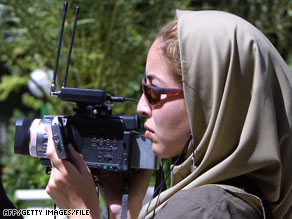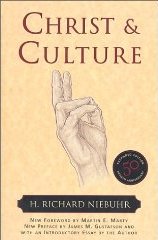I haven’t posted in a while, but I’ve had good reason. These last few months have been extremely busy as my family has struggled to catch up on missed work and return to normalcy after losing both my wife’s father and mother in a span of less than one hundred days. At times the gallows humor has kicked in and we’ve joked that we have become quite good at planning funerals, but the plain fact is that we’re just stunned and numb. There is no real way to be productive in this state. Yes, we have both found that work is comforting in the sense that it gives you immediate purpose and direction. But our work has been mechanical, not terribly creative. So I’ve taken a few weeks off from blogging and will return to the task slowly as winter approaches.
However, it is now November and while Canadian Thanksgiving is not long past, American Thanksgiving – what my family still calls “real Thanksgiving” – is on the horizon. There are all kinds of superficial things that I’m thankful for. The New England Patriots are 7-0, we’ve yet to have a hard frost here in the Montreal suburbs, and we still have jobs and food on the table. Yes, you read that correctly: I just referred to employment and food as superficial, because that is how they feel at the moment. Save your sermons about unemployed folks and hungry people around the world. I’m well aware of the present condition of global humanity. My point is existential, not geo-political or even moral. One of the marks of grief and deep loss is that almost everything seems trivial in comparison. So it is very hard right now to feel thankful for much of anything except the continued health of our now smaller family. How very delicate and contingent even that fact now appears.
I hesitate to voice full-throated thankfulness in regards to these blessings not because I do not register their reality and value, but because they are such minor blips on our emotional screens at the moment. Just now thankfulness for the small things feels like standing on the deck of the Titanic as it slides into the icy ocean and noting appreciatively that at least it’s a cloudless night and the constellations can be seen clearly. Who cares!
These past few months my wife has become quite the observer of awkwardness. She’s a brilliant academic with a keen mind, so when the waves of friends and acquaintances at work, in church and around town have made their way over to offer condolences or send cards, she has done her best to respond gracefully, even as she has catalogued the clichés and inapt platitudes. The plain truth is that, no matter how well meaning, no one knows what to say or how to help. The older folks who’ve dealt extensively with death just say how sorry they are. The less experienced attempt some kind of comforting cliché, insisting that “they are in a better place now,” or pointing to the way in which a person died as a kind of blessing in disguise: “at least she didn’t suffer!” And the cards!!! Oh the cards!!! My wife appreciates them and takes them as signs that at least she and her pain are not going unnoticed. The things people write by hand are both genuine and beautiful. There is something profoundly moving about watching people stumble so terribly to deal with ultimate existential matters. Words fail them all, no matter how eloquent they usually are. But the cards themselves, and by this I mean the words chosen and printed on the cardstock, are just so BLEH! The one’s that quote scripture are the most helpful insofar as they point to the fact that for millennia we have been facing the challenge of losing those we love. The least helpful ask us to look at the bright side. “CHIN UP,” Charlotte the Spider tells us, and so many card manufacturers seem to agree. What nonsense. It’s more than nonsense, it’s almost cruel to say such things to someone in genuine pain and grief.
One card, however, stands out from the rest. I won’t tell you who it’s from or read the handwritten note, but I will quote the text of the card below so that you can appreciate its profound existential truth. Satre or Camus could almost have written it.
Front: You don’t deserve this kind of unfair, Stink-Bomb Crap-Fest.
Inside: Only beautiful, magic-wand-happy, joy-type stuff should happen to you. And that’s what I’m wishing you now.
It is honest and profound at just the right places and irreverent and playful to just the right degree. 1) This sucks. Let’s be honest, this is not some kind of blessing in disguise. It’s just a horrible stink-bomb crap-fest. 2) You don’t deserve it. Why couldn’t Job’s friends have said the same to him? It is unfair and unjust and there is no good reason for it. 3) If it were up to me, and of course it isn’t, I would want only good stuff to happen to you, and I genuinely wish you only the best. By the way, it isn’t up to you either. 4) But let’s be honest, this is the world we live in. There are no elves or unicorns or magic wands and happy-joy-type-stuff is rare, far too rare!…so rare that we have to compare it to magic.
What a great card! So now I’ll ruin it all with a discussion of doctrine. More precisely, I want to talk about Original Sin.
Forget the apples, snakes and naked people for a moment and focus on the deeper truth in the doctrine: the world is fallen. It is not as it SHOULD be, and so we routinely, all of us, do not get what we DESERVE. We are neither punished nor rewarded as we should be. Things do not balance out. Good people suffer and die, while evil people flourish. The rain falls on the just and the unjust alike, and this is true in places where rain is needed and in places where flooding is rampant. Much of the world is one giant “Stink-Bomb Crap-Fest.” But not all of it. There are moments of joy and seasons of health and prosperity. They may be fleeting and ephemeral, as human life is fleeting and ephemeral. But they need not last forever to be true and meaningful.
Problems arise when we come to expect that the world will give us a definitive judgment in the form of narrative closure. Good lives should end like powerful Hollywood biographies and bad lives should end in shame and ignominy. But that isn’t our fallen world. We do not usually get what we deserve. What is deeply true in the doctrine of Original Sin is the fact we cannot read the determinate happenings of this world as a cipher of divine pleasures or discontents, judgments or approvals. The world is absurd to its core – to borrow a phrase from Kierkegaard – with it’s own brutal laws of cause and effect that scoff as human pretensions and desires. If we take this fallen image of the world seriously then we can disentangle two problematic feelings.
On the one hand, if we expect the world to unfold rationally, then there is a serious danger that we will confuse thankfulness and pride i.e. that we will think of blessings as somehow earned rewards and suffering as somehow deserved punishment. In this case we are thankful, but largely thankful to a God who has seen just how deserving we are of all this great stuff! “Let us pray. I thank you dear Lord for my health, which I have earned through forgoing gluten and eating organic, unlike those slobs next-door who get take-out every other night.”
But in a fallen world, where injustice and imbalance and randomness and chaos are the norm, genuine thankfulness becomes possible because we see clearly just how undeserved our blessings are. I say “thank you” to the store clerk as a polite social ritual, not because I am genuinely thankful for her act of service in exchange for my hard-earned money. Genuine thankfulness and unreservedness go hand in hand. All this is to say that this Thanksgiving we may have the first genuine chance that we’ve had in years to be truly thankful. This does not mean that we won’t be sad, won’t mourn, won’t still regret the events of the past year more than we cherish our blessings. Our thankfulness will likely be much lower volume than in previous years, but it may well be more authentic, perhaps even purer. We recognize now more than ever just how undeserving we are, mostly undeserving of the CRAP FEST that has dominated our lives these past months, but also undeserving of the joys and blessings. So I won’t wish you readers a happy Thanksgiving. I’ll wish you instead a thankful Thanksgiving, and we’ll try to have one ourselves.


